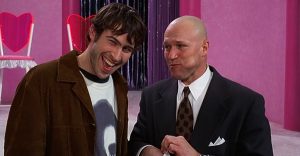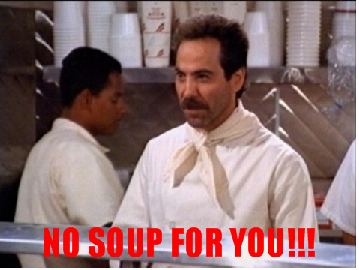Some dude decided it would be smart, in Donald Trump’s America, to drive his car into protestors against Nazis.
Somehow, they got this wrong.

Some dude decided it would be smart, in Donald Trump’s America, to drive his car into protestors against Nazis.
Somehow, they got this wrong.
The most important decision ever made by Dwight D. Eisenhower, Supreme Allied Commander in Europe during World War II, was to ensure the atrocities of German Nazi extermination camps was documented, in photos and film.
 Those images and films are preserved at the Holocaust Museum in Washington, D.C., and 2-of-my-5 daughters have seen them with me.
Those images and films are preserved at the Holocaust Museum in Washington, D.C., and 2-of-my-5 daughters have seen them with me.
Today, everyone has a camera through their phones, and it’s increasingly difficult for someone to say, no, I didn’t do that.
Not that facts matter. Americans did elect Trump.
But as the KKK plans a victory parade for North Carolina, video is circulating of a Saturday speech to 200 attendees at the National Policy Institute’s – make that white nationalists — annual conference at the Ronald Reagan building celebrated the rise of Donald Trump as president-elect and promoted a conquer-or-be-conquered mentality.
“America was, until this past generation, a white country, designed for ourselves and our posterity,” Richard Spencer, a prominent white nationalist. “It is our creation. It is our inheritance and it belongs to us.”
A video published by The Atlantic, which is working on a documentary on Spencer, shows clips of Spencer’s speech for the National Policy Institute, an independent research organization “dedicated to the heritage, identity and future of people of European descent in the United States,” according to its website. The Atlantic reported that Spencer envisions “a new society, an ethno-state that would be a gathering point for all Europeans,” and supports “peaceful ethnic cleansing.”
Members of the D.C. Antifascist Coalition protested the conference and an anti-Semitic dinner hosted at Maggiano’s on Saturday. Some held banners and posters outside of the Italian restaurant, while at least one protester was seen outside of Trump International Hotel.
Toward the beginning of his speech, Spencer said, “Hail Trump. Hail our people. Hail victory!” and the room broke out in applause. Some raised a hand in a Nazi salute.
Spencer also slammed the press, calling members “genuinely stupid” and promoted a philosophy of “conquer or die” among attendees. “To be white is to be a striver, a crusader, an explorer and a conqueror.”
According to The Atlantic, for most of the day, a parade of speakers discussed their ideology in relatively anodyne terms, putting a presentable face on their agenda. But after dinner, when most journalists had already departed, Spencer rose and delivered a speech to his followers dripping with anti-Semitism, and leaving no doubt as to what he actually seeks. He referred to the mainstream media as “Lügenpresse,” a term he said he was borrowing from “the original German”; the Nazis used the word to attack their critics in the press.
Further to the on-going discussion of farts comes word that of all the hideous weapons devised during World War II — Little Boy, the Doodlebug, the bouncing bomb — the British secret service came up with the silliest.
 Declassified letters in an American archive reveal that the Special Operations Executive (SOE), Winston Churchill’s cherished forerunner to MI6, set up a program to undermine German and Japanese officers in occupied countries by squirting them with stinking fluid.
Declassified letters in an American archive reveal that the Special Operations Executive (SOE), Winston Churchill’s cherished forerunner to MI6, set up a program to undermine German and Japanese officers in occupied countries by squirting them with stinking fluid.
Concealed in brass perfume sprayers or little gelatine grenades, the devices were designed to contaminate enemy officers with a “highly persistent smell suggestive of personal uncleanliness”.
In an exchange that could have been taken from a Monty Python sketch, a British military intelligence officer sent one of his US counterparts the complete plans for an olfactory weapon known as “S liquid”. The S was short for “stench”.
Based around skatole, a compound with an intense faecal reek produced by bacteria as they break down meat in the gut, it was intended to make Nazi officers the objects of mockery and contempt and sow alarm and confusion in their meetings.
On August 4, 1943, as the SOE was ramping up its campaign of sabotage in German-occupied France, Wing Commander TR Bird told Stanley Lovell of the American Office of Strategic Services (OSS), a predecessor to the CIA, how to make the obscene formula.
“Up to the present, our employment of evil-smelling substances has been mainly for the purpose of contaminating individuals’ clothing,” he wrote. “Since the air in any ordinary public meeting room is generally free from smell, almost any strange smell which cannot readily be accounted for would arouse suspicion which might easily culminate in fear or even panic.”
The officer appended sketches of an antecedent to the modern joke-shop stink bomb, which would release a gust of skatole when pierced with a pin, and a miniaturised cologne atomiser to be “carried about secreted in the hand or pocket”.
He also discussed the smell given off by the “stinking ant” found in South Africa, whose smell was thought to induce extreme nausea.
The papers were uncovered in the OSS archives near Washington by Mary Roach, a Californian science writer, during her research for Grunt, her book about science and the American military.
Whenever Dr. Hubbell gives me medical advice, I say, stick with French.
 History is well-paved with know-it-alls who fail tremendously when they get out of their field (Linus Pauling and vitamin C).
History is well-paved with know-it-alls who fail tremendously when they get out of their field (Linus Pauling and vitamin C).
Stick to what you know, be good at it, and view the rest of the world with wonderment.
After Mendel’s law of genetics were rediscovered in the early 1900s, societies soon embraced the notion of eliminating undesirables.
About 20 years ago, I gave a talk at a Canadian Association of Science Writers’ meeting, and suggested that Nazism was an extension of what was being talk about in UK journals in the 1920s.
There were gasps, but I was right.
Today it’s the Internet, and people will take whatever evidence they can find to support pre-existing views.
According to An Dornfeld of Public Radio East: News and Classical Network, in Seattle, blackberries are as much a part of the view as the Puget Sound — the twisting brambles so ubiquitous, they’re as likely to vex gardeners as delight them.
The tale behind the city’s blackberries turns out to be equally tangled. It starts at the end of the 19th century, at a time when American life was changing dramatically.
People were moving from rural areas to towns and cities, including Seattle. Industrialization was creating a new middle class.
Down the coast in Santa Rosa, Calif., an eccentric guy named Luther Burbank was hard at work on his experimental farm. Burbank didn’t have any formal training, but he was working feverishly to breed strange and wonderful new kinds of plants.
 “He realizes the growing middle class is going to want to have fresh fruits and vegetables,” says Phillip Thurtle, who teaches in the University of Washington’s Comparative History of Ideas program. “They’re not going to want to eat canned beans. They’re going to want to eat fresh beans all the time. But in order to do that, they’re going to have to be able to be shipped.”
“He realizes the growing middle class is going to want to have fresh fruits and vegetables,” says Phillip Thurtle, who teaches in the University of Washington’s Comparative History of Ideas program. “They’re not going to want to eat canned beans. They’re going to want to eat fresh beans all the time. But in order to do that, they’re going to have to be able to be shipped.”
Thurtle says Burbank set out to create new varieties of fruits and vegetables that would be delicious and prolific – and that could withstand the voyage on the nation’s new transcontinental railroad.
Burbank sold his hundreds of plant creations through catalogs with pictures of shiny fruit and shinier superlatives.
A potato Burbank invented in the 1870s, called the Burbank, later mutated into a potato called the Russet Burbank. It’s the most widely grown potato in America today.
Thurtle says that Burbank was also working on another large-scale project: the thornless blackberry — “kind of the parallel to his spineless cactus or his stoneless plum. He wanted to take the rough spots out of nature, to domesticate it for middle-class lives.”
Burbank traded seeds with fellow collectors from around the world. In a package from India, he found seeds for a huge blackberry with an even bigger flavor.
Burbank named it the Himalaya Giant (even though it’s actually believed to be from Armenia). And he found that this blackberry grew like nobody’s business – but only in temperate areas, like the Pacific Coast. So in 1894, he offered the berry in a special circular he sent buyers in mild climates. It was popular.
By the early 1900s, the Himalaya Giant – which would eventually be known as the Himalayan blackberry – was especially thriving in the Puget Sound region.
Thurtle says Burbank’s business was thriving, too. Everyone wanted to see his plant laboratory. He was hanging out with Thomas Edison (light bulb) and Henry Ford (Model T).
Burbank had become an international celebrity. He was so successful at breeding plants that he became interested in applying the same principles … to people. And that’s where his tale gets problematic.
He started selling a new book that he’d written in his catalogs, The Training of the Human Plant.
Burbank wrote that the crossing, elimination and refining of human strains would result in “an ultimate product that should be the finest race ever known.”
He considered the U.S. the perfect place to practice eugenics, because, at the turn of the century, there were immigrants coming from all over the world. He wrote:
“Look at the material on which to draw. Here is the North, powerful, virile, aggressive, blended with the luxurious, ease-loving, more impetuous South.
“The union of great native mental strength, developed or undeveloped, with bodily vigor, but with inferior mind.”
A kitchen porter at a £27,000-a-year private school has been arrested for allegedly poisoning soup meant for pupils and teachers with diesel.
 Staff raised the alarm after noticing the food had a chemical smell while carrying out routine checks at Stowe school.
Staff raised the alarm after noticing the food had a chemical smell while carrying out routine checks at Stowe school.
A 58-year-old man was arrested at his home near Brackley, Northamptonshire, yesterday on suspicion of administering poison. He was later bailed and also suspended by the school.
A school source said students were told to keep quiet and not even discuss it with friends or on Facebook.
A pupil told the Mirror,
The guy involved has been at the school’s catering department for years. The soup was ditched straight away when another member of catering smelled it. We were told not to discuss it outside school.